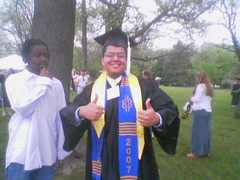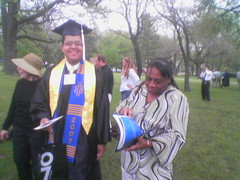


(When finished, that window will hang on one end of the porch, blocking out the neighbors we don't like.)
Looks pretty cool, doncha think?
In the beginning -- and for decades of his career -- the power Robert Moses amassed was the servant of his dreams, amassed for their sake, so that his gigantic city-shaping visions could become reality. But power is not an instrument that its possessor can use with impunity. It is a drug that creates in the user a need for larger and larger dosages. And Moses was a user. At first, for a decade or more after his first sip of real power in 1924, he continued to seek it only for the sake of his own dreams. But little by little there came a change. Slowly but inexorably, he began to seek power for its own sake. More and more, the criterion by which Moses selected which city-shaping public works would be built came to be not the needs of the city's people, but the increment of power a project could give him. Increasingly, the projects became not ends but means -- the means of obtaining more and more power.
As the idealism faded and disappeared, its handmaidens drifted away. The principles of the Good Government reform movement had once espoused became principles to be ignored.
It is organization which gives birth to the domination of the elected over the electors, of the mandataries over the mandators, of the delgates over the delegators. Who says organization says oligarchy.
These words, first published in 1911, sum up Michels' famous "iron law of oligarchy." In Political Parties, Robert Michels, then a young German sociologist, laid down what has come to be the major argument against Rousseau's concept of direct popular democracy which underlay much of the traditional democratic and socialist theory. For Michels argued that the malfunctioning of existing democracy, in particular the domination by the leadership over the society and popular organizations, was not primarily a phenomenon which resulted from a low-level of social and economic development, inadequate education, or capitalist control of the opinion-forming media and other power resources, but rather was characteristic of any complex social system. Oligarchy, the control of a society or organization by those at the top, is an intrinsic part of bureaucracy or large-scale organization. Modern man, according to him, is faced with an unresolvable dilemma: he cannot have large institutions such as naton states, trade unions, political parties, or churches, without turning over effective power to the few who are at the summit of these institutions.
There appears to be a tenuous line of communication between the governors of our society and the governed. This situation does not square with the concepts of democracy we have been taught to revere. The line of communication between the leaders and the people needs to be broadened and strengthened -- and by more than a series of public-relations and propaganda campaigns -- else our concept of democracy is in danger of losing vitality in dealing with problems that affect all in common.



